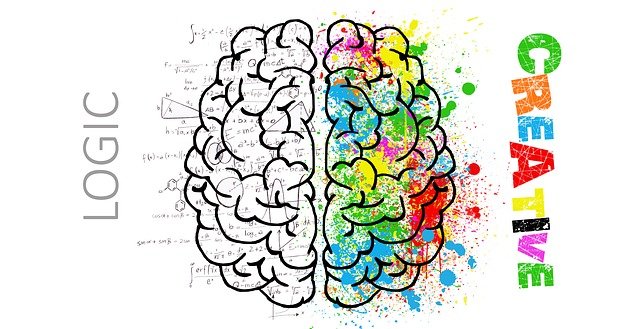You can distinguish people from the way they think. Some are more convergent thinkers while others are divergent thinkers. These terms were coined by Joy Paul Guilford, an American psychologist who had a keen interest in defining human intelligence. Read below to learn the differences of convergent vs. divergent thinking, their effects on productivity, and which type of thinker you are.
Convergent Thinking
This type of thinking seeks the best solution to a problem based on logic. Since it’s straightforward and mostly inclined to deal with existing facts, it’s usually quick to reach a solution, enhancing productivity. Also, it’s usually accurate, as nuance and ambiguity are avoided. For instance, knowing that two plus three equals five isn’t a nuanced process since we’re dealing with logic.

Convergent thinking is also quick, since it involves using tried and tested processes and applies them to produce a related result. Calculus questions are solved using the stored logic in your mind, helping you reach the solution faster than if you were to imagine and create solutions by yourself from scratch.
Standardized tests need convergent thinking where the answer can be absolutely right or wrong and perspectives are black or white.
Divergent Thinking
Divergent thinking contrasts with convergent thinking. It’s a thinking process that involves seeking multiple solutions without judging the limitations of a single right answer.
Divergent thinking encourages you to think beyond the possible – to go beyond what facts deem possible. This way, you can come up with creative solutions and also diverse perspectives of viewing a topic – which are neither regarded as right nor wrong.

Since it generally takes longer to come up with answers, some people think it’s unproductive. However, in the long run, it may give effective and efficient solutions that enhance overall productivity.
Anthony Jay, a world-renowned writer, famously said, “The uncreative mind can spot wrong answers, but it takes a very creative mind to spot wrong questions.” This describes the nature of divergent thinking very well.
Differences of Convergent vs. Divergent Thinking
Convergent vs. divergent thinking is comparing two sides of the same coin, but they contrast in the following ways:
| Convergent | Divergent |
|---|---|
| Requires a search for a single best solution | Requires multiple possible answers to one problem |
| Requires logic | Promotes defying logic |
| Fast due to the systematic quick processing of facts | Slower due to randomized idea creation |
| Often requires people to identify, define, and apply | Often requires people to imagine and create |
| Accurate | Free-flowing and ambiguous |
You probably know someone who constantly talks about facts, about what has been proven and how to apply the set rules to solve problems. You may also know someone who tries to come up with new unique ideas when solving problems. That’s the subtle differences of convergent vs. divergent thinking.
Convergent vs. Divergent Thinker: Which One Are You?
In studies on cognition and creativity, scientists have discovered that individual differences in the wiring of the brain make some people more inclined to be convergent than divergent and vice versa.

If you are a convergent thinker, you’re often uncomfortable with ambiguity and prefer thinking in black and white. You find it difficult to tolerate different or counterintuitive perspectives, especially in art. You prefer working with facts that also help you ensure control. Psychologists even associate these kinds of thinkers with introverted behavior.
But for the divergent thinker, many things are possible. If you’re more divergent, chances are your view of the world is rarely black and white but filled with a variety of perspectives that can’t be put in a box of right or wrong. You can tolerate multiple points of view without striving to label their accuracy.
Can You Be Both a Convergent and Divergent Thinker?
As you can see, both convergent and divergent thinking have benefits. You can be both a convergent and divergent thinker by using these modes of thinking at the right time and for the right situations to stay productive.

At times you may only need proven facts and to apply them to get more done. However, other times call for fresh solutions that need you to come up with random ideas and arrange them logically to create possible solutions. For utmost productivity, it’s sometimes advisable to delegate work to people who are inclined to think in a divergent or convergent manner to reach a desirable solution.
I am more of a divergent thinker. After reading about convergent vs. divergent thinking, which one are you? Tell us in the comments section below! If you’d like to learn more about how your thinking may be affecting your productivity, check out how to control your overthinking to aid productivity.

